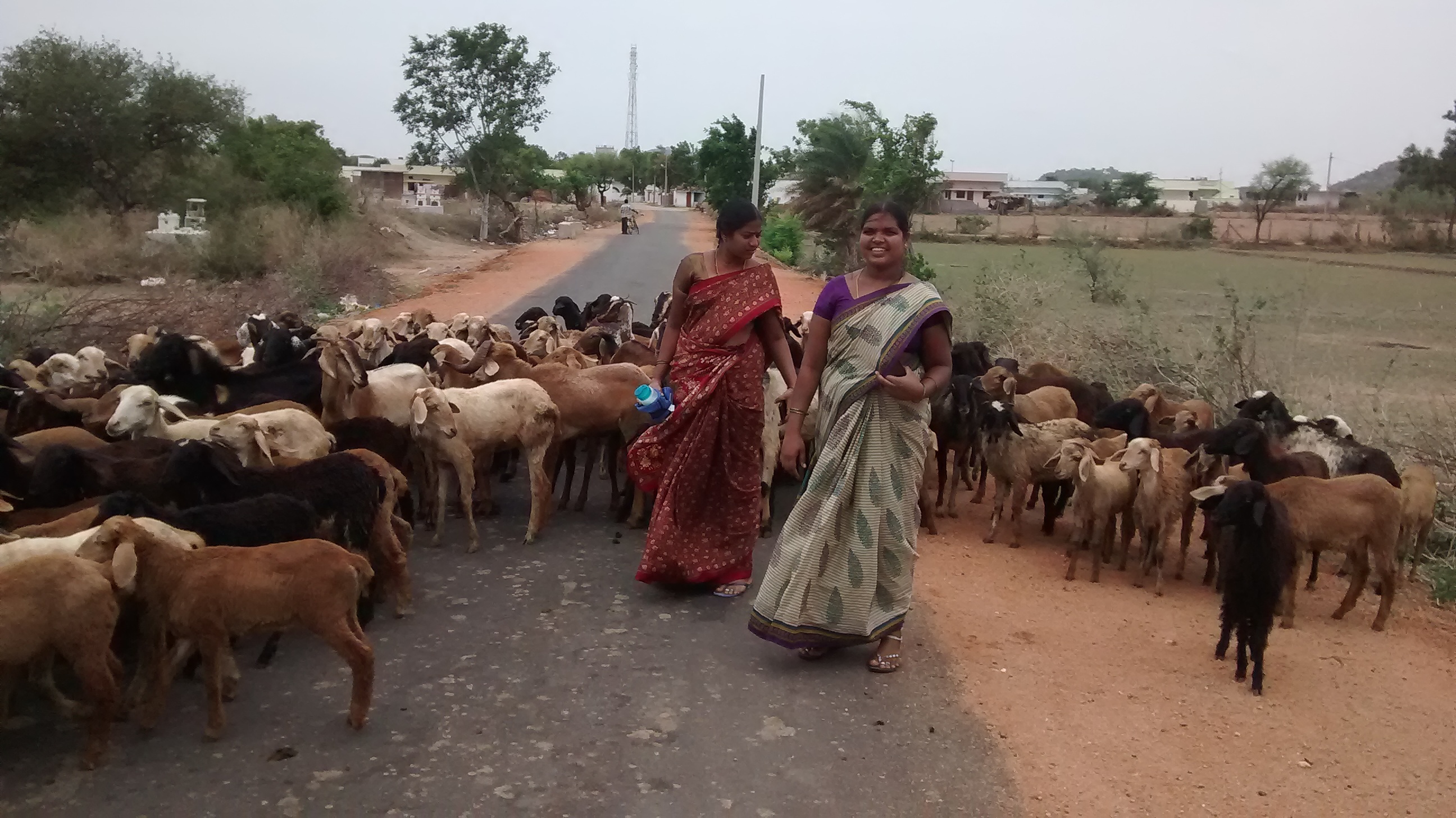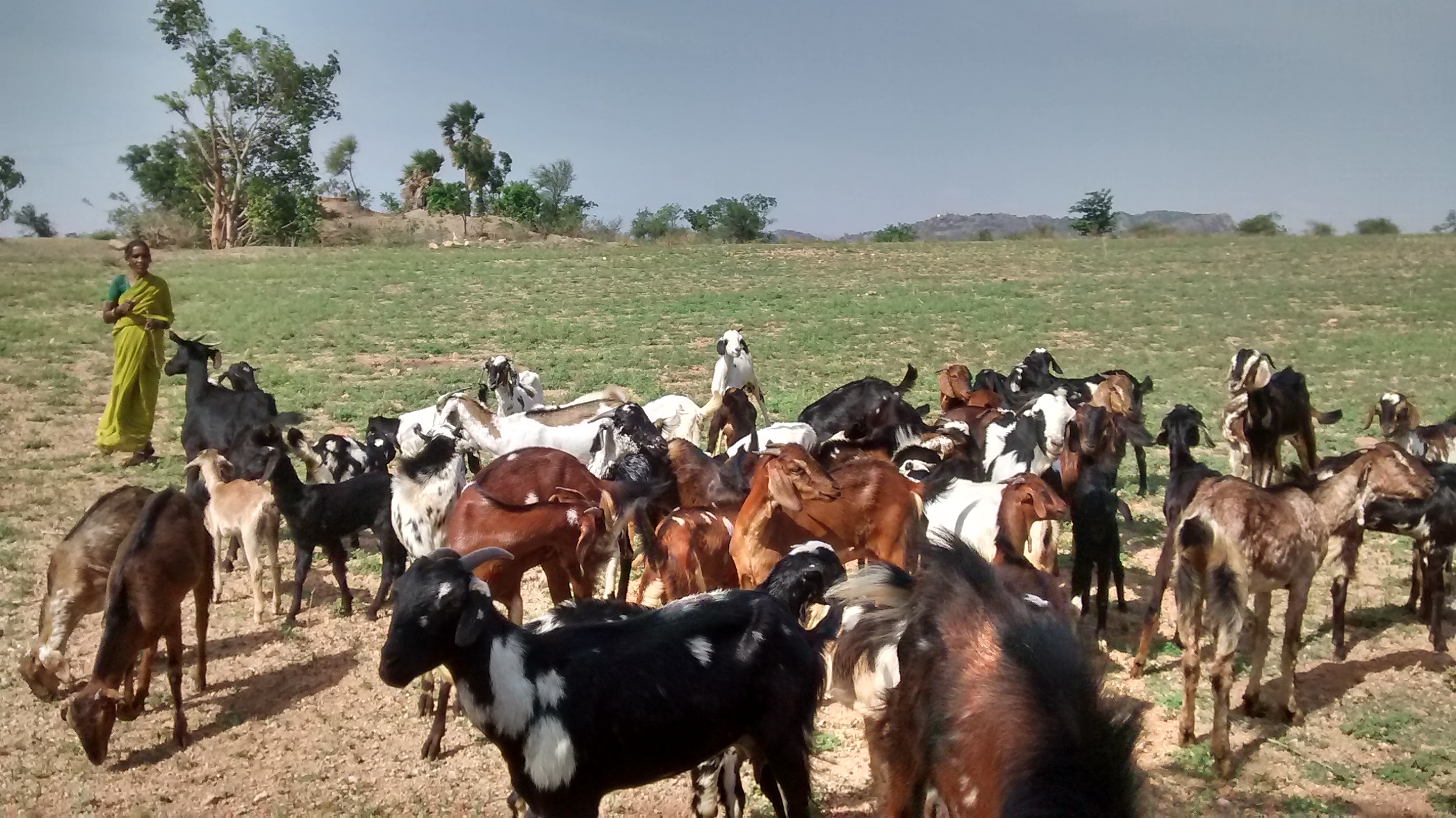Training and Business Development in (Goat Farming) for Poor Women from Village
The Goat farming is now a days going to be a very alluring project for the rural farmers.
At present, goat farming has become a profitable business and it requires a very low investment because of its
multi-functional utility. Commercial goat farming business is contributing greatly to the economy and nutrition
of a country. Goats are multi-functional animal. Generally goat farming means rearing goats for the purpose of
harvesting milk, meat and fiber.
A wide variety of products can be produced from goats, such as milk, meat, fiber, manure etc. Goat's milk is used for
producing full cream, goat butter, goat milk cream, fresh goat milk etc. Goat is a multi functional animal and plays
a significant role in the economy and nutrition of landless, small and marginal farmers in the country. Goat rearing
is an enterprise which has been practiced by a large section of population in rural areas. Goats can efficiently
survive on available shrubs and trees in adverse harsh environment in low fertility lands where no other crop can
be grown.
In pastoral and agricultural subsistence societies in India, goats are kept as a source of additional income and as an
insurance against disaster. Goats are also used in ceremonial feastings and for the payment of social dues.
The goat meat consumption is very high and growing this as population grows. This increase in consumption gives the
farmers to think of better breeds and the techniques of producing more meat commercially in a lesser time. The meat
goat breeds are mainly raised for their highly meat production purpose
Of the total meat production, more than 70 per cent comes from cattle, buffalo and pig and for that preference is limited due to socio-religious factors. Therefore, burden lies on goat and sheep meats. Rising per capita income, growing urbanization and unfolding globalization are boosting the demand for high-value commodities including meat. Due to these fast socio-economic changes in the recent past, a rapid shift has taken place in the dietary habits in favour of non-vegetarian diet.
As a result, the demand for goat and sheep meats has swiftly increased and the domestic market price for chevon/mutton has risen from Rs 150/- per kg to Rs 300 -400 per kg over a decade.
Moreover, huge expected increase in the demand for meat in developing countries (by 100%), especially in the East and SouthEast Asia in the next 20 years presents an excellent opportunity for enhancing export of live goat/sheep and their meat from India. Responding to the market signals, the goat production system in India has been slowly moving from extensive to intensive system of management for commercial production. However, in the absence of any systematic study, there have been questions from the entrepreneurs, progressive farmers and even researchers on the economic viability and sustainability of commercial goat farming under intensive system. No information was available on the socio-economic aspects of commercial goat farming under semi-intensive and intensive systems of production in the country. This study, probably for the first time, was planned to address issues related to commercialization of goat farming in the country and to evolve a suitable policy framework for this otherwise neglected sector of the livestock economy.
Pipal Tree Skill Ventures Pvt Ltd (PTSVPL) taken the initiative to start the goat farming in the rural areas with an aim to empower the women in the villages. This will improve and enhance the livelihood of women who can earn a handful income by starting a small unit of goat farming in their villages. Pipal Tree facilitating them by providing loan of goats to start with. Apart from giving the goats Pipal Tree also provides them the hands on training about the maintenance of the goats and to get assured income and livelihoo. In this regard Pipal tree established a full fledged goat farming unit in its premises in Ranga Reddy district in Telangana with good breeds of goats with good trained manpower. Pipal Tree started extensive survey into the villages and started collecting the information from the village women those are interested to start the goat farming by taking loan from Pipal Tree. The women who are mobilized from poor families in villages are given residential training at our training centers. The training includes.
Regular skill based training classes, site visits, workshops etc.
Basic computer skills and soft skills.
Classes by executives and counseling by employers.
After completion of this, the women are capable of run the unit of goat farming in their villages to earn their livelihood.


 PIPAL TREE SKILL VENTURES
PIPAL TREE SKILL VENTURES
 PIPAL TREE SKILL VENTURES
PIPAL TREE SKILL VENTURES

